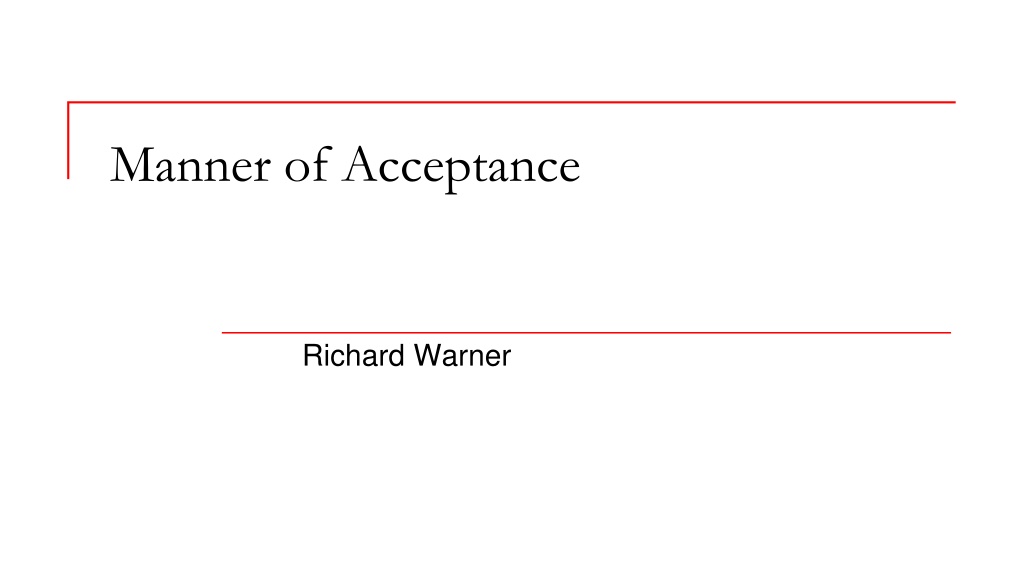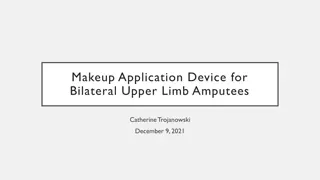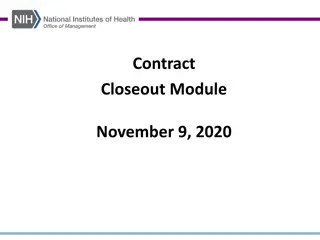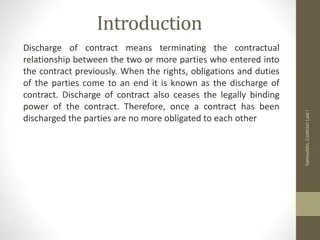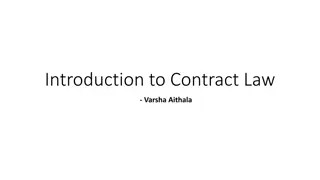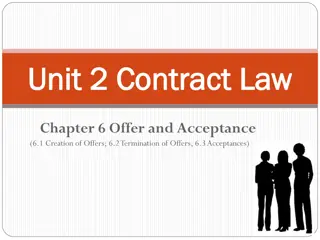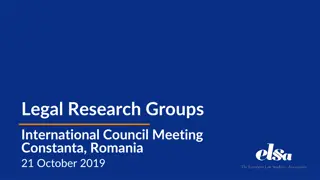Understanding Bilateral and Unilateral Offers in Contract Law
Contract law distinguishes between bilateral and unilateral offers, where acceptance can be through promise or performance, respectively. The case of Davis v. Jacoby exemplifies the complexities that arise when determining the nature of an offer, acceptance, and revocation in different scenarios. The court's interpretation in this case sheds light on the importance of timing and intention in establishing the presence of a valid contract.
Download Presentation

Please find below an Image/Link to download the presentation.
The content on the website is provided AS IS for your information and personal use only. It may not be sold, licensed, or shared on other websites without obtaining consent from the author. Download presentation by click this link. If you encounter any issues during the download, it is possible that the publisher has removed the file from their server.
E N D
Presentation Transcript
Manner of Acceptance Richard Warner
Terminology Unilateral offers = offer (promise) + acceptance by performance Bilateral offers = offer (promise) + acceptance by promise Old rule: An offer is either bilateral or unilateral but not both.
A Problem With Unilateral Offers The traditional revocation rule: an offer can be revoked any time prior to acceptance. I say, "I offer to pay you $100 to walk across the bridge now". I don't want you to promise to walk across the bridge; I want you to do it--my offer is an offer to pay for the performance. You cannot accept this by saying "I accept"--that would be to promise to walk across, and that is not what I am asking for. The only way to accept the offer is to walk across the bridge. When I yell "I revoke", have you already accepted by walking part way across? The traditional answer is "no"; acceptance consists in the--complete--performance of the requested action. This is not much protection for the offeree.
Davis v. Jacoby An old couple in California is ill. They wanted their niece and her husband to come from Canada to take care of them. What was the offer? "If you come, Caro will inherit everything." This is an offer to make a will. When was the offer received? April 14. When did the niece and her husband agree to come to California? They wrote back the same day. When did they actually perform? April 22. So, Caro and her husband accepted by two methods: they said "We accept"--i. e., they wrote back agreeing to come, and they performed.
The Problem The problem is that the offeror committed suicide before April 22. The death of the offeror revokes the offer. A much criticized rule. If the offer was a unilateral offer--one that could only be accepted by performance--then there is no contract: there was no acceptance prior to the death. If th eoffer was bilateral, there is a contract. The acceptance by mail came before the death; that was effective on April 14.
The Court Holds It Is Bilateral Why? How soon would Jacoby like to be certain Caro and her husband would come to Sacramento? When would Caro and her husband like to be certain that they had a contract with Jacoby?
Change The Facts A Bit Suppose that Caro and her husband perform first before saying that they accept. They come to California before the old man dies. Then, when he dies, they think they had better write a letter accepting the offer. Now the performance comes before the death and the letter afterwards. Does that mean there is no contract? It would be odd to say so. In the actual case, the court argues that the old man wanted a promise because he wanted to be assured that they would come and take care of him. Well, isn't actually showing up even more assurance? So why not say that this offer could be accepted either way?
Klockner v. Green This is another inheritance case with facts similar to Davis v. Jacoby. The offerees admit that the would have taken care of the lady anyway, even without the offer. Even if the court finds that the offer does not result in an enforceable contract, the offerees are not hurt--in the sense that they would be just as well off as if the offer had never been made. Now look at the burden on the offeror of protecting the offerees. In this case, there is no burden. The offeror wants the inheritance to go the offerees and to no one else. A final point: even if the offerees would be just as well off as the would have been with no offer, this does not mean that it is fair to the offerees not to protect them. One reason they had for doing what they did was to get the inheritance.
Cleaning My Office 1 Suppose I am leaving for a meeting and will not be back until the end of the day; I don't care when you clean it as long as it gets done by the end of the day. You are also the only person I am going to ask; I have no time to ask anyone else. As I am leaving, I say to you, "I'll pay you $10 to clean up my office." You don't accept or reject my offer right away. You want to look at my office and see messy it is. I leave and you go look at my office. You decide $10 is a good price and clean it up. When I come back can I revoke my offer on the ground that you never accepted it? (a) Yes (b) No
Cleaning My Office 2 Similar facts. I offer you ten dollars to clean up my office. I am going to class in a hour--as you know. If you decide not to do it, I'll make an announcement in class and hire someone else. You say you want to think about it, and go away. I don't hear from you before I have to go to class. While I'm in class you clean my office, but by the end of class I have hired someone else. Can I revoke the offer on the ground that you never accepted? (a) Yes (b) No
Cleaning My Office 3 Essentially the same facts as the second one. But this time I don't hire anybody after class; I am walking around on the eighth floor, and as I pass my office I notice that you have cleaned it up. Can I revoke my offer now and save ten dollars? (a) Yes (b) No
Is This An Offer? (a) Yes (b) No
Sunset Sail Sunset Sail (Sunset) is a boat rental company that periodically needs to replace its sails. It always deals with North Sails (North). Sunset sends a letter to North asking North to quote a price on an order for 20 sails. North writes back: "We offer to make you 20 sails at $1000 per sail." Sunset responds in a second letter: "We're thinking about it, but $1000 seems high." Then Sunset decides that the market price of sails is bound to rise soon and sends a third letter: "$1000 is OK; the sails are to be delivered one every 30 days beginning June 13." (a) North's first letter was an offer, and Sunset's second letter was a rejection. (b) North's first letter was a price quote and Sunset's third letter was an offer. (c) North's first letter was an offer; Sunset's second letter was an inquiry about price, and their third letter was an acceptance.
